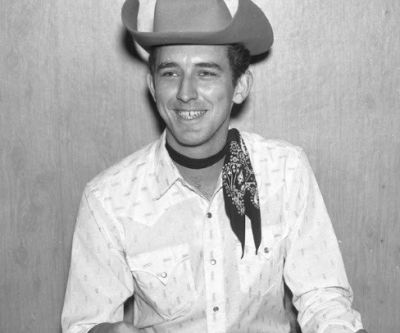December 20, 2018
Tuesday
8:00 p.m.
Minneapolis, MN
Test schedule
A live performance with Robin and Linda Williams at the Cedar Cultural Center
May 20, 2018
Sunday
3:00 p.m.
Lexington, MA
Lexington, MA
A live performance at the Saenger Theatre
April 10, 2018
Tuesday
8:00 p.m.
Tulsa, OK
Tulsa, OK
A live performance at the Brady Theater
March 17, 2018
Saturday
8:00 p.m.
Long Beach, CA
Long Beach, CA
A live performance at the Carpenter Performing Arts Center
March 15, 2018
Thursday
7:00 p.m.
Mobile, AL
Mobile, AL
A live performance at the Saenger Theatre
“O Mistress Mine Where are you Roaming?” by William Shakespeare. Public Domain. (buy now)
O mistress mine, where are you roaming?
O stay and hear, your true love’s coming,
That can sing both high and low.
Trip no further, pretty sweeting:
Journeys end in lovers meeting,
Every wise man’s son doth know.
What is love? ’tis not hereafter,
Present mirth hath present laughter:
What’s to come is still unsure.
In delay there lies no plenty,
Then come kiss me, sweet and twenty:
Youth’s a stuff will not endure.
In the summer of 1869, John Muir (books by this author) signed up to help drive a flock of 2,500 sheep through the Sierras to Yosemite National Park. His journal of that summer was published in 1911 as My First Summer in the Sierra. On this day in 1869, Muir wrote in his journal: “The beaked hazel is common on cool slopes up toward the summit of the Pilot Peak Ridge. There is something peculiarly attractive in the hazel, like the oaks and heaths of the cool countries of our forefathers, and through them our love for these plants has, I suppose, been transmitted.”
In 1890, 30-year-old Anton Chekhov (books by this author) set off on a three-month, 6,000-mile overland journey to Sakhalin Island, one of Russia’s remote penal colonies in Siberia. He wanted to see and experience for himself the life of prisoners there, and it became the subject of his only nonfiction book, The Island of Sakhalin, first published in 1893 and 1894. His journey took him up the north-flowing Amur River. On this day in 1890, Chekhov sent a letter to his friend and publisher Alexei Suvorin.
He wrote: “The Amur is a very fine river; I have gained more from it than I could have expected, and I have been wishing for a long time to share my transports with you, but the rascally steamer has been rocking all the seven days I have been on it, and prevents me writing properly. Moreover, I am quite incapable of describing anything so beautiful as the shores of the Amur; I am at a complete loss before them, and recognize my bankruptcy. How is one to describe them? … Rocks, crags, forests, thousands of ducks, herons and all sorts of beaked gentry, and absolute wilderness. … Truly I have seen such riches and had so much enjoyment that death would have no terrors now. The people on the Amur are original, their life is interesting, unlike ours. … The lowest convict breathes more freely on the Amur than the highest general in Russia. … Today I changed into the steamer Muravyov, which they say does not rock; maybe I shall write.”
On this day in 1844, Joseph Smith Jr., founder of the Latter-day Saints movement, was killed by a mob in Carthage, Illinois. Born in Sharon, Vermont, in 1805, Smith reported he had been visited by an angel named Moroni in 1823. Moroni directed him to a buried cache of gold plates on which were written the history of the Israelites. He retrieved these and translated them with the help of two seer stones that were with them, and so wrote the Book of Mormon, on which he based a new sect of Christianity. He and his followers moved west in 1831, headed to Missouri to found a “New Zion”; on the way, they passed through Kirtland, Ohio, where they doubled the size of their church after converting about a hundred people. Smith declared Kirtland the “eastern boundary of New Jerusalem,” calling all the Saints to meet him there.
Smith and his followers stayed in Kirtland for eight years; during this time he scouted Missouri for a site for New Zion, which he believed he found in Jackson County. The locals weren’t having any of it, though, and they grew resentful, eventually forming mobs and attacking the Mormon settlements. Smith and his followers were forcibly expelled from Jackson County in 1833. They set their sights on Far West, Missouri, in 1838, but relations with the non-Mormons in the community grew increasingly contentious and resulted in the Mormon War of 1838. Smith was imprisoned and nearly executed for treason, but he escaped by bribing the sheriff, and the group moved on to Illinois in 1839, settling in the town of Commerce, which they renamed Nauvoo.
Smith and the Mormons presented themselves as refugees and oppressed minorities to their new neighbors in Illinois, but eventually they ran into trouble, and public opinion had turned against them by 1842. In 1843, Smith petitioned Congress to name Nauvoo an independent territory, and also announced himself as a third-party candidate for president of the United States. When he ordered the destruction of the facilities of the Nauvoo Expositor, a newspaper that had accused him of practicing polygamy and trying to get himself anointed as king of a theocracy, things got heated. He declared martial law, and the governor called for a trial. Smith was arrested and jailed in Carthage, Illinois. Smith reportedly said: “I am going like a lamb to the slaughter; but I am calm as a summer’s morning; I have a conscience void of offense towards God, and towards all men. I shall die innocent, and it shall yet be said of me — he was murdered in cold blood.” Two hundred men, their faces painted black with gunpowder, broke into the jail and shot Smith and his brother Hyrum to death.
It’s the birthday of activist Helen Keller (books by this author), born in Tuscumbia, Alabama (1880). The story of her childhood is well-known: how as a toddler she became sick with an illness that left her both blind and deaf, and how she became a difficult child, until her 20-year-old teacher, Anne Sullivan, managed to communicate the letters for “water” while running water from the pump on the little girl’s hand. It was a breakthrough, and on that day alone, Keller learned 30 words.
She was very bright, and went on to Radcliffe College. By the time she was a teenager, her story had made Keller a celebrity. One of her admirers was Mark Twain. Twain met Keller when she was just 14, and they remained friends throughout his life. He said, “The two most interesting characters of the 19th century are Helen Keller and Napoleon Bonaparte.”
Keller became a popular lecturer. She began sharing her story and advocating for others with disabilities, but became a radical activist along the way. She joined the Socialist Party of Massachusetts in 1909, when she was 29, and then the Industrial Workers of the World. She supported Communist Russia and hung a red flag over her desk. The FBI opened a file on her. She advocated for women’s suffrage and for access to birth control. She helped found the American Civil Liberties Union.
Helen Keller died in 1968, at the age of 87.
She said, “No one has ever given me a good reason why we should obey unjust laws.”






